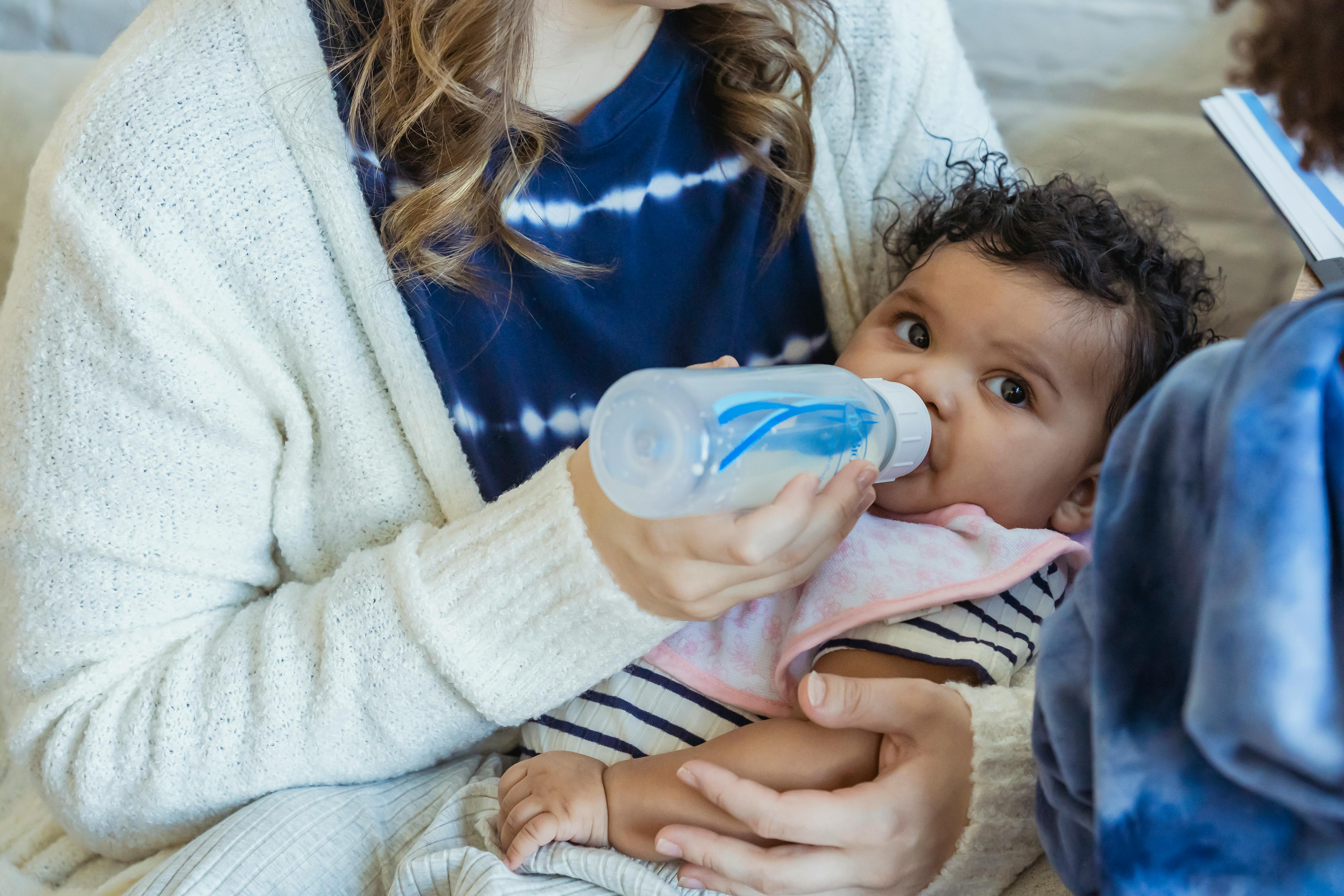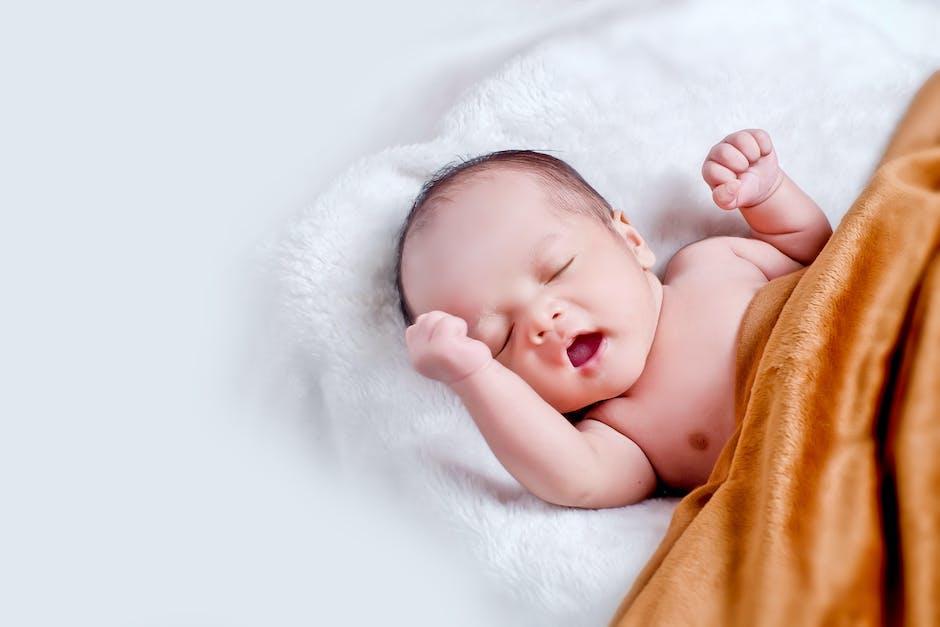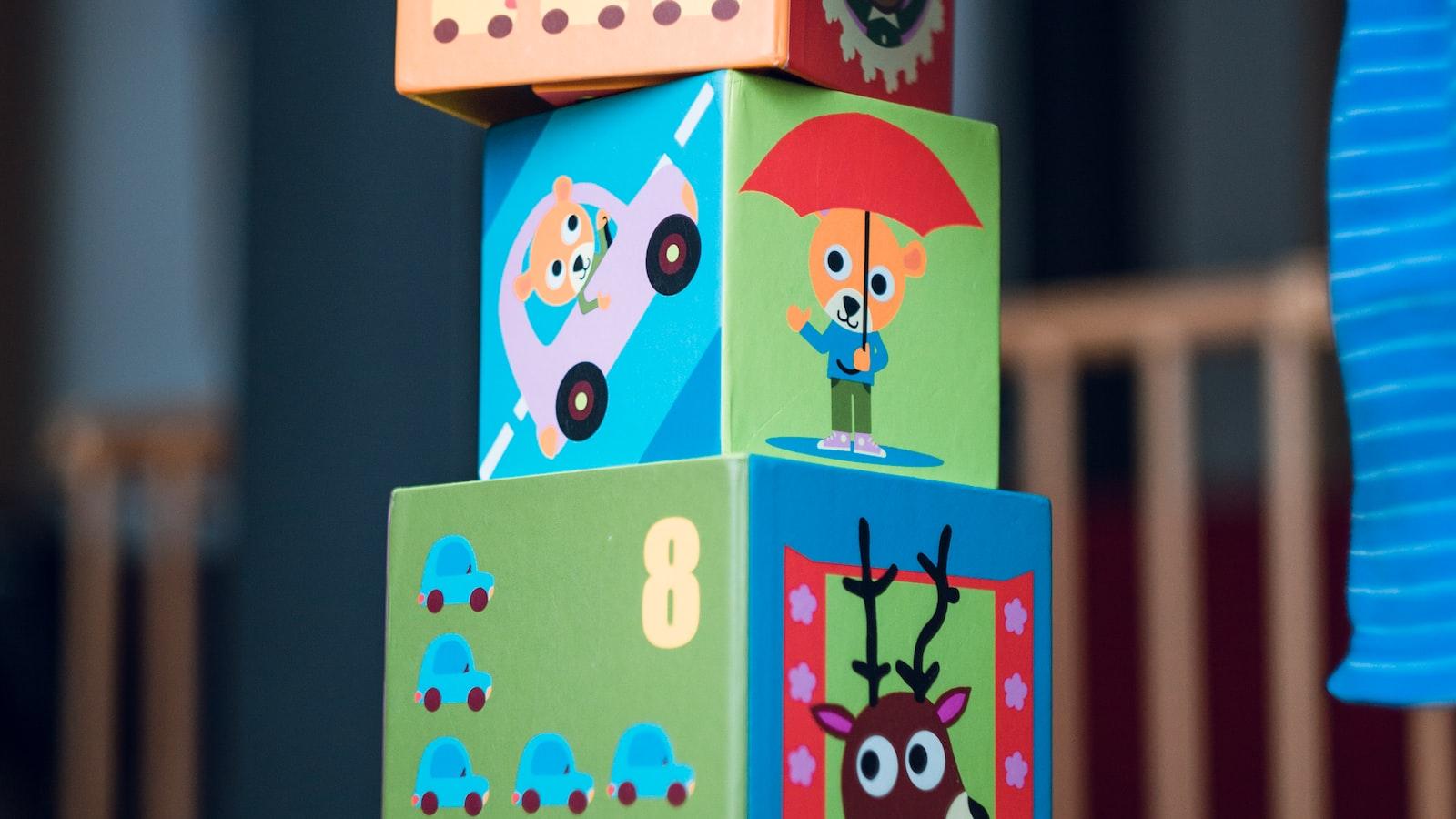Introducing solid food to baby rats is an important part of their development. Knowing when to start feeding your baby rat solid food can help ensure that they stay healthy and grow into happy, active adults. In this article, we will discuss the best time to begin introducing solids to baby rats, what foods are appropriate for them, and how to transition your rat from a milk diet to a more varied diet.Baby rats should be weaned from their mother’s milk at the age of 4-5 weeks.
Solid Foods for Baby Rats
Baby rats need a variety of nutrient-rich foods in order to stay healthy and grow. While they can eat most of the same food as adult rats, there are some types of solid food that are especially beneficial for baby rats. These include pellets, seeds, fruits and vegetables.
Pellets are specially designed for baby rats and contain all the essential vitamins and minerals that baby rats need to stay healthy. They should be introduced slowly at first, as too much can cause digestive problems. Pellets should be given daily, and fresh pellets should be added every few days to ensure they remain fresh.
Seeds such as sunflower seeds, pumpkin seeds and other small seeds are great sources of protein for baby rats. They provide essential fatty acids that help with growth and development. It is important to feed the correct size seed to baby rats in order to prevent choking or gastrointestinal problems.
Fruits and vegetables can also provide important nutrients for baby rats. Fruits such as apples, bananas, grapes and strawberries are all good options for baby rats. Vegetables like carrots, celery, spinach and kale are also excellent sources of vitamins and minerals that will help keep your rat healthy. It is important to remember that fruits and vegetables should always be washed thoroughly before feeding them to your rat in order to remove any pesticide residue or bacteria that may be present on them.
In addition to these foods, it is also important to provide plenty of fresh water for your baby rat at all times. Water helps keep your rat hydrated which is essential for a healthy body. You should also provide them with treats regularly as this will help them become accustomed to eating solid foods in a safe environment where they feel secure. Treats can include small pieces of fruit or vegetables as well as nuts or small pieces of cooked meat or fish.
By providing your baby rat with a variety of nutrient-rich foods they will grow strong and stay healthy throughout their life!
How Much Solid Food Should Baby Rats Eat?
Baby rats can start eating solid food from the age of about 4 weeks. At this stage, they should be given a diet consisting of about 25% pellets and 75% fresh vegetables and fruit. It is important to ensure the pellets are of good quality and that the vegetables and fruit are washed thoroughly before feeding.
It is best to offer a variety of fresh foods to baby rats as their dietary needs can change as they grow older. For example, baby rats need more protein than adult rats, so adding high-protein items such as cooked egg or yogurt may be beneficial. It is also important to monitor how much food the baby rat eats in order to ensure it isn’t getting too much or too little nutrition.
Baby rats should be fed twice a day; once in the morning and once in the evening. The amount of food each rat needs will vary depending on its size and activity level, but a good rule of thumb is that each rat should consume around 1-2 tablespoons of solid food per day. Fresh vegetables and fruit should be offered in small amounts throughout the day as snacks.
It is important to remember that baby rats are growing rapidly and need a balanced diet with plenty of nutrients in order to stay healthy. If you notice your rat isn’t eating enough or has started losing weight, it may be necessary to consult with a veterinarian for advice on how best to meet its nutritional needs.
By following these guidelines, you can ensure that your baby rat gets all the nutrition it needs for healthy growth and development.
Nutrients Essential for Baby Rats
Baby rats require a balanced diet full of essential nutrients in order to thrive and grow. These nutrients are necessary for the proper development of their organs, bones, and muscles. Essential nutrients for baby rats include protein, fat, carbohydrates, vitamins, minerals, and water.
Protein is an important nutrient for baby rats as it helps to build and maintain muscle mass. Protein sources include meat, fish, eggs, dairy products and legumes. Babies should be offered a variety of proteins to ensure they get the full range of amino acids needed for growth.
Fats are also essential for baby rats as they provide energy and help absorb fat-soluble vitamins such as A, D, E and K. Healthy fat sources include nuts and seeds or cold-pressed vegetable oils like olive oil or flaxseed oil.
Carbohydrates are an important energy source for baby rats providing them with the fuel they need to develop properly. Complex carbohydrates like brown rice or oatmeal should be provided as these will give baby rats sustained energy throughout the day.
Vitamins are also essential for baby rats as they support healthy skin and coat health as well as helping to strengthen bones and teeth. Vitamin A helps boost immunity while Vitamin D is important for bone growth. Vitamin B complex helps support healthy brain function while Vitamins C & E aid in tissue repair & recovery after injury or illness.
Minerals are essential in keeping your rat’s bones strong and their organs functioning optimally. Calcium is especially important for growing babies as it helps to form strong bones and teeth; other minerals such as magnesium & zinc also aid in this process by aiding in the absorption of calcium into the body.
Lastly, water is essential for life itself – without it your rat would quickly become dehydrated which can lead to serious health issues such as organ failure or even death! Make sure fresh clean water is always available to your rat at all times!
In summary, a balanced diet full of protein, fat, carbohydrates, vitamins minerals and water is essential for keeping your baby rat healthy & happy! By providing them all the right nutrients you can ensure that your little one will have a long & healthy life!
Introducing Solid Food to Baby Rats
It is important to introduce solid food to baby rats in a safe and gradual manner. When baby rats are about 4 weeks old, they can start to be introduced to solid food. Before introducing solid food, it is important to prepare a good diet that includes a variety of nutritious foods.
When introducing solid food, it is recommended to start with soft, moist foods such as mashed vegetables or baby cereals. This will help the baby rat adapt more easily to the texture and taste of solid foods. As the rat gets used to the new food, you can gradually increase the amount and variety of food offered.
It is important to make sure that all foods are finely ground or mashed so as not to cause any choking or digestive issues. Avoid giving your rat fatty or sugary treats as these can be unhealthy for them in large amounts. Additionally, avoid giving your rat any foods that may contain toxins such as onions and garlic.
It is also important to monitor your rat’s eating habits when introducing solid food. If the rat starts refusing certain foods or stops eating altogether, it may be an indication that something is wrong and should be addressed by a vet right away.
In addition to providing a healthy diet for your rat, it is also important to give them plenty of fresh water every day in order to keep them hydrated and healthy. By introducing solid food gradually into their diet, you can ensure that your baby rats grow up healthy and strong!

Signs of Readiness for Solid Food in Baby Rats
Introducing solid food to baby rats is an exciting milestone for pet owners, but it’s important to be aware of the signs that show your rat is ready. Baby rats typically reach their full size after 8–10 weeks, and they should start eating solid food when they are about 6 weeks old. Signs that your baby rat is ready for solid food include changes in behavior, eating habits, and physical characteristics.
Changes in Behavior: Baby rats who are ready for solid food will often act more alert and active than usual. This may include increased vocalizations or restlessness as they explore their environment. They may also become more curious about the food that their cage mates are eating, begging for some of their food or trying to steal it from them.
Eating Habits: When a baby rat reaches the age where they are ready for solid foods, you may notice that they are no longer interested in drinking milk from a bottle or nursing from their mother. Instead, they will begin to nibble on small pieces of solid food given to them by you or another rat in the cage. You may also see them licking up bits of kibble scattered around the floor of their cage.
Physical Characteristics: A baby rat’s body will begin to change when it’s time to start eating solid foods. Its fur will become thicker and shinier as its digestive system matures. Its appetite will increase as well, so you may notice that it begins to eat more than before. You may also see changes in its teeth; its incisors should be fully developed by this point and its molars should be starting to come in.
By paying close attention to your baby rat’s behavior, eating habits, and physical characteristics, you can determine when it is ready for solid food. Introducing solid foods at the right time can help ensure that your pet gets the nutrition it needs to grow into a healthy adult rat!
Determining If Baby Rat Is Eating Enough Solid Food
When a baby rat is transitioning from nursing to eating solid food, it is important to ensure they are getting enough nourishment from their meals. The best way to determine if your baby rat is eating enough solid food is by monitoring their weight and size. It should be increasing steadily and you should see weight gain each week.
If the baby rat’s weight does not increase over time, it may be due to insufficient food intake or poor absorption of nutrients due to underlying health issues. If this happens, consult a veterinarian for further evaluation.
Another way to tell if a baby rat is getting enough solid food is to observe its eating habits. It should be readily accepting meals and eagerly finishing them in one sitting without leaving any food behind. If the baby rat takes longer than usual to finish meals or leaves uneaten portions, it may indicate that the portion size was too large or the food was not appealing enough for the baby rat.
It is also important to pay attention to the type of food being offered. Rats need a balanced diet with plenty of protein, fats, vitamins and minerals for healthy growth and development. Offer fresh vegetables, fruits, nuts, grains, eggs and meat in small amounts as treats throughout the day rather than relying on processed foods like pellets or seed mixes as these are not nutritionally complete diets for rats.
Overall, monitoring your baby rat’s weight and eating habits along with providing nutritious meals will help ensure that your pet is getting enough nourishment from its solid foods.
Foods to Avoid When Feeding a Baby Rat
When feeding a baby rat, it’s important to be aware of what foods should be avoided. Processed and sugary foods like candy, chips, and other snack foods should be avoided as they can cause health problems for baby rats. Foods that are high in fat or sodium, such as bacon, sausages, and processed meats should also be avoided. Baby rats also have difficulty digesting dairy products such as cheese, yogurt, and milk. Foods that are high in fiber or contain a lot of indigestible plant matter may also cause digestive issues in baby rats. As with any pet, it is important to feed them fresh food that has been properly prepared. Fruits and vegetables should be washed thoroughly before feeding them to your pet rat. Fresh meats such as small amounts of cooked fish or poultry can also be given in moderation. Make sure to speak with your veterinarian about the best diet for your baby rat before giving them any new food items.
It is important that you do not overfeed your rat as this can lead to obesity and other health problems. Avoid giving your rat treats or providing too many snacks throughout the day as this can lead to an unhealthy diet for your pet. Lastly, make sure to always provide fresh water for your baby rat so they stay hydrated and healthy.

Conclusion
In conclusion, baby rats should be fed a diet of milk-based formula until they are four weeks old. Afterward, they can begin to eat solid foods. To introduce them to solid food, you should start with soft items like wet cat food or pureed fruits and vegetables. As the rat grows, you can gradually introduce harder items into their diet such as commercial rat chow or fresh fruits and vegetables. It is important to monitor the amount of food that you give your rat so that it stays healthy and happy.
Be sure to provide your rat with clean and fresh water at all times. Additionally, it is important to provide chew toys for your rat so that it can properly maintain its teeth. By following these steps, you will ensure your baby rat has access to a healthy and balanced diet as it grows up.
Overall, feeding baby rats properly is essential for their health and growth. It is important to know when the right time is to start introducing solid foods into their diets in order for them to get all the nutrition they need. By providing a balanced diet for your baby rat, you will ensure its long-term health and happiness.




